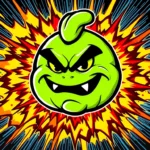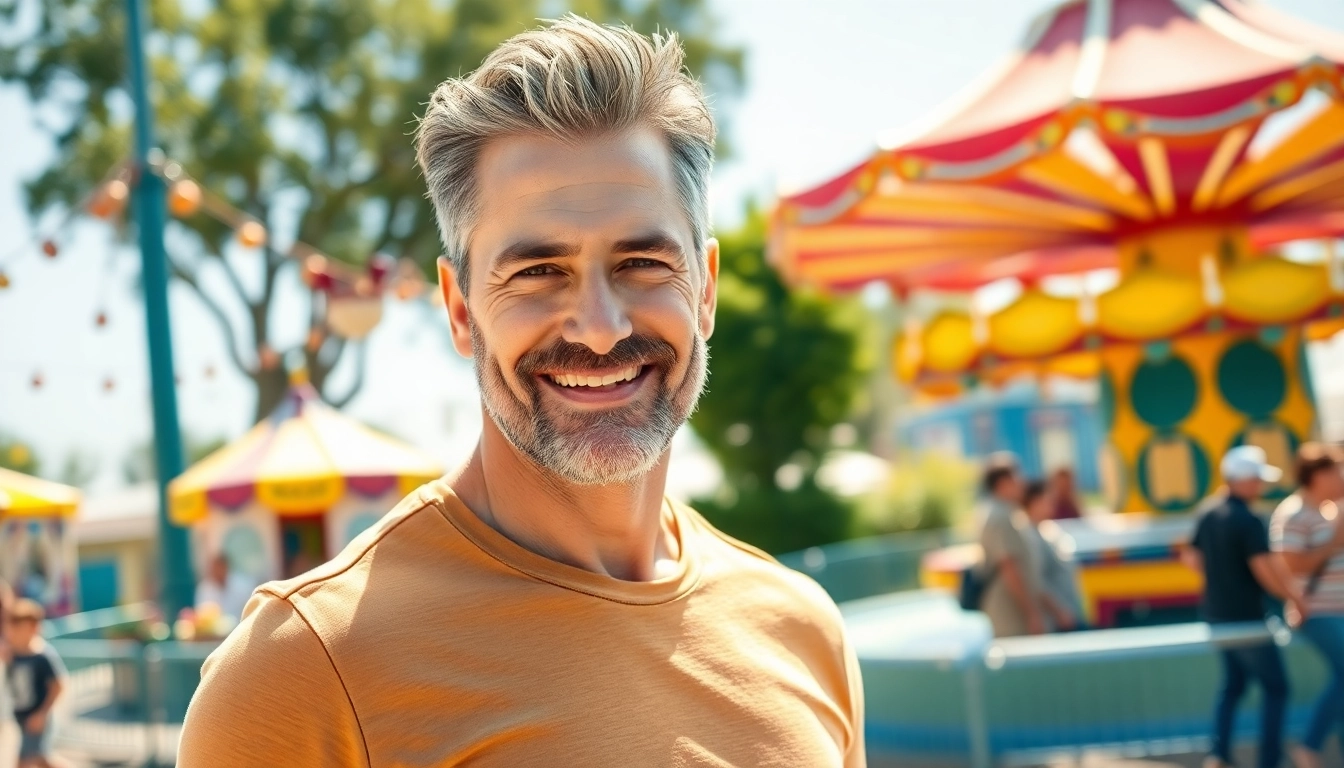Introduction to DILF: Definition and Origins
The term dilf is a colloquial acronym that stands for “Dad/Daddy I’d Like to F*.” It is used to describe an older, mature man who exudes attractiveness and sexual appeal. Unlike some labels that are strictly tied to biological paternity, a man doesn’t necessarily need to be a father to be called a DILF. The phrase gained popularity as part of internet slang and pop culture, often serving as a humorous or admiring compliment to men who embody a certain rugged, handsome, and confident persona.
The origin of the term traces back to the same cultural wave that popularized the acronym MILF, which stands for “Mother I’d Like to F*.” MILF became widely recognized through movies, television, and internet memes, and soon after, DILF entered the lexicon as a counterpart emphasizing older male attractiveness. While MILF was often associated with confident, sexy mothers, DILF shifted focus onto the appeal of mature men who display strength, charisma, and a certain rugged charm.
The emergence of DILF as a popular term is rooted in modern culture’s fascination with age-defying attractiveness and the celebration of masculinity in its various forms. It also reflects a broader societal appreciation for older men who defy traditional stereotypes of aging, emphasizing that sex appeal isn’t limited to youth. Over time, DILF has become a versatile term, used humorously among friends, as a compliment in dating culture, and even in mainstream media.
Cultural Popularity: From Films to Internet Trends
The rise of the term dilf in popular culture can be traced through various media and internet phenomena. Initially, it made its way into casual conversations and jokes, but soon, its presence was solidified in movies, TV shows, and social media. The term’s humorous and provocative nature made it an attractive addition to the lexicon of pop culture slang, especially in contexts where humor and admiration intersect.
One of the earliest media instances that contributed to the popularization of DILF was the 2009 film American Pie Presents: The Book of Love. This comedy, coming from the same franchise that introduced the term MILF to mainstream audiences, features a character known as Rob’s father, who is portrayed as an attractive, confident, and charismatic older man. Although the film’s primary focus isn’t on the DILF concept, the character’s portrayal helped normalize the idea of older men being seen as sexually appealing. The film’s humorous tone further embedded the term within youth culture and casual conversations.
Beyond films, television series have played a significant role in shaping the DILF phenomenon. The Netflix series Riverdale, which debuted in 2017, features Fred Andrews, the father of protagonist Archie Andrews, as a quintessential DILF. Portrayed as a caring, strong, and handsome man, Fred Andrews embodies the mature, attractive archetype that fans and viewers admire. His character’s popularity among fans highlights how the DILF image has been embraced in mainstream media, often representing the ideal of the dependable, rugged, and attractive older man.
Notable DILF Characters in Pop Culture
Daddy Halsin in Baldur’s Gate
The world of video games has also contributed to the DILF culture, particularly with characters that exude strength, protection, and maturity. Daddy Halsin, a character from the popular role-playing game Baldur’s Gate III, is often affectionately called a DILF by fans due to his commanding presence, protective personality, and rugged appearance. While the lore doesn’t specify his age explicitly, his demeanor and design evoke the classic image of a mature, strong, and attractive man who commands respect. Fans have embraced the nickname, appreciating his protective qualities and leadership, which add to his allure.
Fred Andrews in Riverdale
As previously mentioned, Fred Andrews from Riverdale epitomizes the DILF archetype in television. Portrayed by actor Luke Perry, Fred is depicted as a dependable, handsome father figure with a rugged charm and a caring nature. His character’s appeal goes beyond his physical looks; his integrity, strength, and maturity make him a favorite among fans who admire the mature masculine ideal. The portrayal of Fred Andrews demonstrates how the DILF image can be integrated into mainstream storytelling, emphasizing qualities such as dependability and emotional strength alongside attractiveness.
Rob’s Father in American Pie Presents
The 2009 film American Pie Presents: The Book of Love introduced a character that helped popularize the DILF term. Rob’s father is depicted as a confident, attractive, and charismatic older man, embodying the DILF stereotype. His presence in the film adds humor and admiration, serving as a nod to the cultural shift that celebrates mature masculinity. This character’s portrayal contributed to the gradual acceptance and normalization of the term in pop culture discussions.
The Rise of DILF in Internet Culture and Social Media
DILFs of Disneyland Instagram account
The internet has played a crucial role in elevating the DILF phenomenon from casual slang to a vibrant subculture. One notable example is the Instagram account DILFs of Disneyland. With over 300,000 followers, this account features photos of fathers and older men enjoying family time at Disneyland, celebrating the charm, style, and attractiveness of mature men in everyday settings. The account combines humor, admiration, and a sense of community, highlighting that DILFs are not just fictional characters but real men who embody these qualities in real life.
This social media presence underscores how the DILF concept has expanded beyond media portrayals into everyday culture. It fosters a sense of appreciation for older men who maintain their attractiveness and confidence, often showcasing their playful side in family-friendly environments. The popularity of the account demonstrates that admiration for DILFs transcends age and context, becoming a celebration of mature masculinity in modern society.
r/DILFs Reddit Community
Online forums and communities have further cemented the DILF phenomenon. The subreddit r/DILFs is an NSFW community where nearly 100,000 members share photos, discussions, and memes related to attractive, mature men. This community serves as a space for fans to celebrate DILFs, exchange ideas, and appreciate the diverse representations of older masculinity.
The subreddit’s popularity illustrates how the DILF concept has become a significant part of internet culture, combining humor, admiration, and sometimes explicit content. It reflects a broader cultural shift that embraces mature attractiveness and challenges stereotypes that associate youth exclusively with sexual appeal.
DILF in Adult Content and Search Trends
The concept of DILF has also made a substantial impact in adult entertainment and online search behaviors. As a widely searched tag, DILF has become a popular keyword in adult content platforms, indicating a strong demand for media featuring older, attractive men. This trend highlights how societal views on age and attractiveness have evolved, with more appreciation for the appeal of mature masculinity.
Search engine data reveals that interest in DILF content peaks in tandem with pop culture moments, social media trends, and celebrity appearances. The term’s popularity continues to grow as more people recognize and celebrate the allure of older men who defy aging stereotypes. This shift contributes to a broader acceptance and normalization of aging as an attractive and desirable phase of life.
The Appeal of DILFs: Why They Capture Attention
What makes DILFs so captivating? Several factors contribute to their widespread appeal:
- Maturity and Confidence: DILFs often exude a sense of self-assurance that comes with experience. Their confidence can be incredibly attractive, signaling stability and emotional strength.
- Rugged Handsomeness: Many DILFs possess a rugged, masculine aesthetic—whether through facial features, physique, or style—that appeals to a broad audience.
- Protective and Dependable Qualities: Their nurturing, protective nature, often portrayed in media, evokes feelings of safety and admiration.
- Breaking Age Stereotypes: DILFs challenge societal stereotypes that associate aging with decline, instead emphasizing that attractiveness and desirability can flourish with age.
- Relatability and Aspirational Qualities: Many fans see DILFs as embodying qualities they aspire to or find relatable—strength, wisdom, stability, and charisma.
Ultimately, the allure of DILFs lies in their combination of maturity, attractiveness, and confidence—traits that resonate deeply across cultural boundaries and personal preferences.
Breaking Stereotypes: DILFs Beyond the Conventional Image
While the stereotypical image of a DILF often includes a well-built physique, rugged features, and a confident demeanor, the concept is evolving to include a broader spectrum of representations. Modern portrayals emphasize personality traits such as kindness, humor, intelligence, and emotional availability, alongside physical attractiveness.
In media and real life, DILFs are increasingly diverse, breaking away from traditional stereotypes of masculinity. They can be professionals, artists, athletes, or everyday men who maintain their attractiveness through style, grooming, and confidence. This inclusivity reflects a societal shift towards valuing qualities beyond physical appearance and recognizing the multifaceted nature of attractiveness in older men.
Furthermore, the DILF phenomenon encourages a more inclusive view of aging, celebrating men who embrace their age while remaining attractive and desirable. This evolution challenges outdated notions that attractiveness declines sharply after a certain age, instead promoting the idea that confidence, personality, and charisma are timeless qualities.
Conclusion: The Enduring Allure of the DILF Phenomenon
The dilf phenomenon is more than just a slang term; it is a reflection of changing societal attitudes towards age, masculinity, and attractiveness. From its origins in pop culture and movies to its vibrant presence on social media and online communities, DILF has become a symbol of mature masculinity celebrated for its confidence, charm, and rugged appeal.
As cultural perceptions continue to evolve, the appeal of DILFs shows no signs of diminishing. Whether in media portrayals, internet trends, or real-life admiration, DILFs embody a timeless allure that challenges stereotypes and celebrates the attractiveness of age. This phenomenon highlights that sex appeal is not confined to youth but can flourish across the lifespan, embracing maturity as a source of confidence and attractiveness.
In conclusion, understanding the DILF trend offers insight into broader cultural shifts regarding age, masculinity, and sexuality. It underscores society’s growing appreciation for diverse forms of attractiveness and the recognition that confidence, personality, and charisma are as vital as physical appearance. The enduring charm of the DILF phenomenon continues to inspire admiration and conversation, making it a fascinating aspect of contemporary culture.








